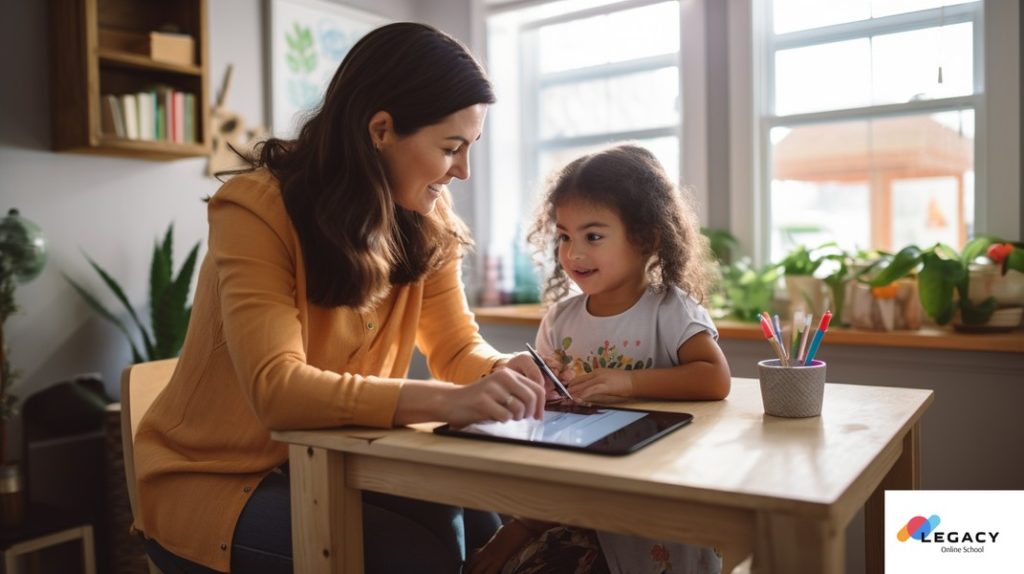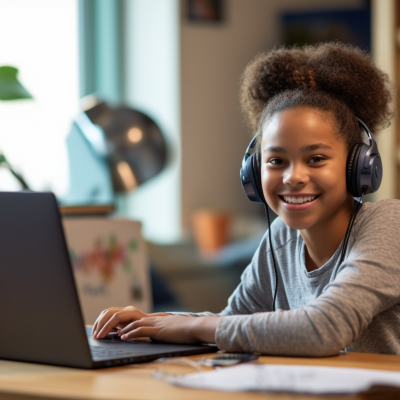In the digital age, the landscape of education has transformed dramatically, with online learning becoming a staple for students across the globe. This shift has raised questions about the development of essential social skills in children attending online elementary schools. How do they forge meaningful relationships, learn to communicate effectively, and develop empathy in a virtual setting? This article delves into the intricate world of social skills development within online elementary education, exploring both the challenges and innovative solutions that can foster a rich social learning environment.
Inhalt
- 1 The Importance of Social Skills: Why Are They Crucial?
- 2 Challenges of Online Learning: Lack of Face-to-Face Interaction
- 3 Advantages of Online Learning: Flexibility and Accessibility
- 4 Strategies for Parents: Encouraging Social Interaction
- 5 Strategies for Teachers: Interactive Online Activities
- 6 Technology’s Role: Social Media and Apps
- 7 Schlussfolgerung
The Importance of Social Skills: Why Are They Crucial?
Social skills are the building blocks of successful interpersonal relationships and essential for navigating the complexities of social interactions in daily life. For children, especially those in elementary school, developing these skills is critical as they lay the foundation for understanding empathy, building friendships, resolving conflicts, and ultimately, thriving in a community. In the context of online learning, the development of social skills takes on a new dimension. The digital classroom offers a different environment compared to traditional face-to-face learning, necessitating innovative approaches to ensure children continue to develop these crucial life skills effectively.
Challenges of Online Learning: Lack of Face-to-Face Interaction
One of the most significant challenges presented by online learning is the reduced opportunity for face-to-face interaction. This limitation can impact children’s ability to interpret and express nonverbal cues, such as facial expressions, body language, and tone of voice, which are vital components of effective communication. Furthermore, the spontaneous and often serendipitous social interactions that occur in physical settings—like playground conversations and classroom group work—are less frequent in virtual environments. This reduction in casual social engagement opportunities can hinder the natural development of social skills.
Lösungen
To address these challenges, educators and parents can employ several strategies. Incorporating live video sessions can partially replicate face-to-face interactions, allowing students to see and respond to each other in real time. Group projects that require collaboration through digital platforms can also promote teamwork and communication skills. Additionally, encouraging students to engage in structured online social activities, such as virtual clubs or interest groups, can provide alternative avenues for socialization and skill development.
Advantages of Online Learning: Flexibility and Accessibility
Despite its challenges, online learning offers unique advantages that can positively impact the development of social skills. The flexibility and accessibility of digital platforms allow students to connect with a diverse group of peers from different backgrounds and cultures, broadening their social horizons and fostering a global perspective. Moreover, online environments can provide a more comfortable space for introverted students to express themselves, participating in discussions and group activities they might shy away from in a traditional classroom. This increased engagement can boost confidence and improve communication skills over time.
How It Can Enhance Social Skills
Online learning platforms that incorporate forums, chats, and collaborative projects enable students to practice written communication, critical thinking, and empathy by engaging in discussions from different viewpoints. These digital interactions can teach students to articulate their thoughts clearly, understand the importance of listening, and develop patience and empathy as they navigate conversations with peers who have varying opinions and experiences.
Strategies for Parents: Encouraging Social Interaction

Parents play a crucial role in supporting their children’s social development, particularly when traditional socialization opportunities are limited. Encouraging virtual playdates with classmates or friends can provide children with a safe and controlled environment to interact socially. Utilizing social media platforms designed for kids, under parental supervision, can also help children stay connected with their peers outside of school hours. Moreover, parents can facilitate participation in online extracurricular activities such as music classes, art clubs, or science groups, which not only nurture specific interests but also promote interaction with like-minded peers.
Virtual Playdates, Social Media, etc.
Virtual playdates, when organized thoughtfully, can include interactive games, storytelling sessions, or even shared online activities that mimic the dynamics of in-person play. Social media platforms and apps designed for younger audiences, with safety and privacy in mind, offer another layer of social interaction, enabling kids to share experiences, celebrate achievements, and maintain friendships. By closely monitoring and guiding their children’s online interactions, parents can ensure these digital experiences contribute positively to their social development.
Strategies for Teachers: Interactive Online Activities

Teachers are pivotal in facilitating social skills development through the online learning environment. By integrating interactive online activities, educators can create engaging and collaborative learning experiences that mirror the social interactions of traditional classrooms.
Group Projects
Group projects are an excellent way for students to learn teamwork, responsibility, and communication. Teachers can assign projects that require students to work together in small groups, using digital tools like Google Docs, Slack, or Microsoft Teams to collaborate. These platforms allow for real-time editing, chatting, and video conferencing, simulating a collaborative working environment. Group projects encourage students to delegate tasks, share ideas, and resolve conflicts, all of which are essential social skills.
Discussion Forums
Online discussion forums offer a platform for students to articulate their thoughts, ask questions, and engage in debates. Teachers can create forums around various subjects or topics, encouraging students to contribute their perspectives. This activity not only enhances writing and critical thinking skills but also teaches respect for others’ opinions and the importance of constructive feedback. Encouraging a respectful and open forum environment teaches students the value of dialogue and diversity of thought.
Technology’s Role: Social Media and Apps
Technology plays a crucial role in modern education, offering innovative ways to enhance communication skills among students. Social media and educational apps can be powerful tools for engaging students and encouraging the development of social skills.
Social Media and Apps
Social media platforms and educational apps designed for children can facilitate social learning and interaction in a controlled and safe environment. Teachers can utilize these platforms to create class groups, where students can share work, celebrate achievements, and offer support to peers. Apps with gamification elements can make learning more engaging, encouraging students to interact and collaborate with their classmates. Additionally, educational apps that focus on language learning, storytelling, or problem-solving can enhance communication skills by encouraging students to express themselves and work together to achieve common goals.
Verbesserung der Kommunikationsfähigkeiten
By integrating technology thoughtfully, teachers can enhance students’ communication skills. For instance, video conferencing tools can be used for oral presentations, allowing students to practice public speaking and receive immediate feedback. Similarly, digital storytelling projects can help students learn to articulate their thoughts coherently, improving their narrative skills and emotional expression.
Schlussfolgerung
The development of social skills in an online elementary school setting presents unique challenges and opportunities. While the lack of face-to-face interaction can hinder natural socialization processes, the strategic use of interactive online activities, group projects, discussion forums, and technology can significantly mitigate these effects. Teachers play a crucial role in designing engaging and collaborative learning experiences that promote social skills development. Similarly, technology, when used responsibly, can enhance communication skills and offer students innovative ways to connect, share, and learn from one another.
In conclusion, the digital learning environment, when navigated thoughtfully, can provide a rich platform for developing essential social skills. By leveraging the advantages of online learning and employing effective strategies, educators and parents can ensure that students not only excel academically but also develop the social competencies needed to succeed in the interconnected world of today and tomorrow.






